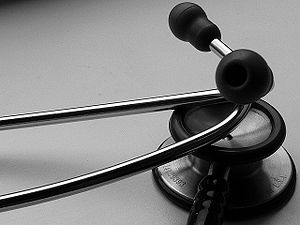How To Keep Your Medical Debt From Inflaming
Medical Debt Leads Many Consumers to Bankruptcy
According to an analysis of data at a big credit counseling firm, medical debt has become one of the usual suspects in the filing of personal bankruptcies. The nonprofit credit counseling outfit, which caters to consumers nationwide, reported that approximately one out of five consumers who are seeking financial counseling in 2010 and 2011 point to medical bills as the main motivation for them to ask for bankruptcy protection.
With a boatload of people losing their jobs, they too lose their health coverage. Even those who are still employed also struggle with medical debt as health costs in the form of higher premiums and deductibles spiral. There may be health plans offered at lower monthly premiums, but this just translates to more out-of-pocket expenses if the fall ill. You do not want to be part of this dismal statistics. To protect both your financial and physical health, check out the following tips.
Keeping Medical Debt Manageable
While your medical debt is still under control and you can still afford to pay the monthly payments, consider these tips.
Pay in full or in huge amounts if the health institution offers incentives. A good number of hospitals, clinics and physicians would be happy to give 20 to 30 percent discount for patients who can settle their medical bills in a shorter period. Remember, I am not saying that you use your credit card to settle, except if and only if you can pay the entire amount come due date. Otherwise, you will see your debt spiral all the more with the interest rates of credit card companies.
Directly negotiate with your creditors. If you are financially hard-pressed, let the hospital billing department, doctor or clinic understand your predicament and arrange for lower monthly payments that you can afford. The hospital or clinic would rather accept such arrangement than sharing a considerable chunk of your payment to collection agencies.
Seek assistance from an agency that can help you with medical bill negotiation. If you lack negotiation savvy, there are debt management firms that can do the job for you. Good ones are adept at dealing with government and private insurance companies because they are knowledgeable of the procedures and have the experience. Go for a company that does not ask for upfront payments.
What To Do When You Can No Longer Pay For Your Medical Debt
Seek Help From Government Programs. If you are eligible (this depends on your age, income, disability status, pregnancy status, citizenship, blindness, and assets) you can ask assistance from Medicare and Medicaid in reducing your medical bills or ask for a complete coverage for your medical debt. The terms of Medicaid differ from state to state, but they generally give coverage for low-income families. If you are at least 65 or young but disabled, then Medicare may be of help to you. This is again contingent on you meeting their requirements. If you do not qualify and have kids, you can also seek help from the State Children Health Insurance Plans, which can subsidize health insurance for your children.
Seek Help From Financial Aid Department or Charities. The law requires each hospital to have a charity department to make financial aid available to people who want to retain or seek for non-profit tax status. You can also find many other nonprofit agencies that can help you with your medical debt. Again, you need to satisfy the requirements to be eligible for financial aid, but self-help information may be offered.
Consider Medical Debt Consolidation. Consolidating your medical bills with a home-equity loan or seeking refinancing is your last recourse and the least recommended because you can possibly lose your home if you cannot pay the loan. When you opt for medical debt consolidation, you take out equity from your property to settle your medical bills. As a result, you need to pay higher mortgage payments. This is a sound option IF you have ran out of options and the interest rate of the loan is significantly lower than that of your medical bills.
 Follow
Follow

